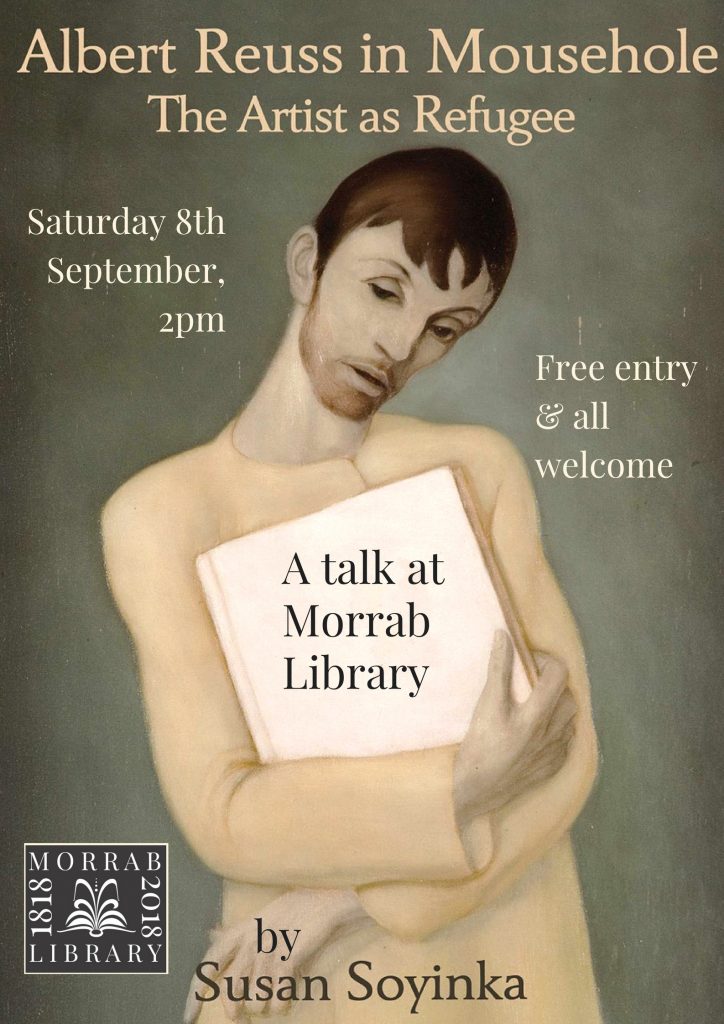by Harriet-Jade Harrow | Apr 6, 2022 | Uncategorized

We have some very exciting news to share with you. Today we are thrilled to announce the appointment of our two new Morrab Library patrons: the actress, comedian and writer Dawn French and writer Philip Marsden. The pair will be positive ambassadors for our library going forward, helping to promote our work and support Morrab Library’s role in the community.
Chair and Honorary Librarian Harry Spry-Leverton shared his thoughts on this new appointment:
“I am delighted to welcome Philip Marsden and Dawn French as Patrons of the Morrab Library and to wish them well as they jointly follow in the footsteps of our former Patron, the masterly John Le Carré. Together with Lord St Levan and Michael Grandage, our President, Dawn French and Philip Marsden will ensure we have a strong team in place to represent the Morrab Library on both a county and a national level. I know they will help to spur us on to greater things at an exciting time in our history as the only independent library in Cornwall.”
Dawn French will be the library’s first female Patron since its inception in 1818. French is best known for her forty-year career in TV comedy (Comic Strip Presents, French & Saunders and The Vicar of Dibley) and is also a best-selling author and a panto dame. French’s family come from Cornwall, she has made her permanent home here for eighteen years and is the proud Chancellor of Falmouth University.
Philip Marsden is the author of numerous books of history, fiction and nonfiction, traversing widely with stories from Ethiopia and the Middle East to the Western Islands of Scotland, and closer to his home in Cornwall. Marsden wrote enchantingly of Morrab Library in his book Rising Ground: A Search for the Spirit of Place (which is available to borrow from the library, alongside many of his other works, as well as books by Dawn French).
We wanted to share Dawn French and Philip Marsden’s glowing comments about Morrab Library with you and hope that they resonate with your experience of the library.
Dawn French:
“It is my total delight to become a Patron of the Morrab Library. If you like books, if you like history, if you like beautiful houses, if you like hidden treasures, if you like people, if you like peace, you will LOVE Morrab. In fact, if you are alive, you will love it there.”

Philip Marsden:
“I am delighted and honoured to be made Patron of the wonderful Morrab Library. For a book lover, there is no better place on earth than a library like this, with its higgledy-piggledy series of rooms crammed with books on every subject.
And for anyone who loves Cornwall, the Morrab’s archive and its local collections are an endless source of knowledge and delight. I have already spent many happy hours in the Morrab, researching, being endlessly distracted by its open shelves – and now look forward to many more. It is a tremendous asset to Penzance and to Cornwall as a whole and I look forward to helping it to continue to serve the interests of its members and the wider community.”
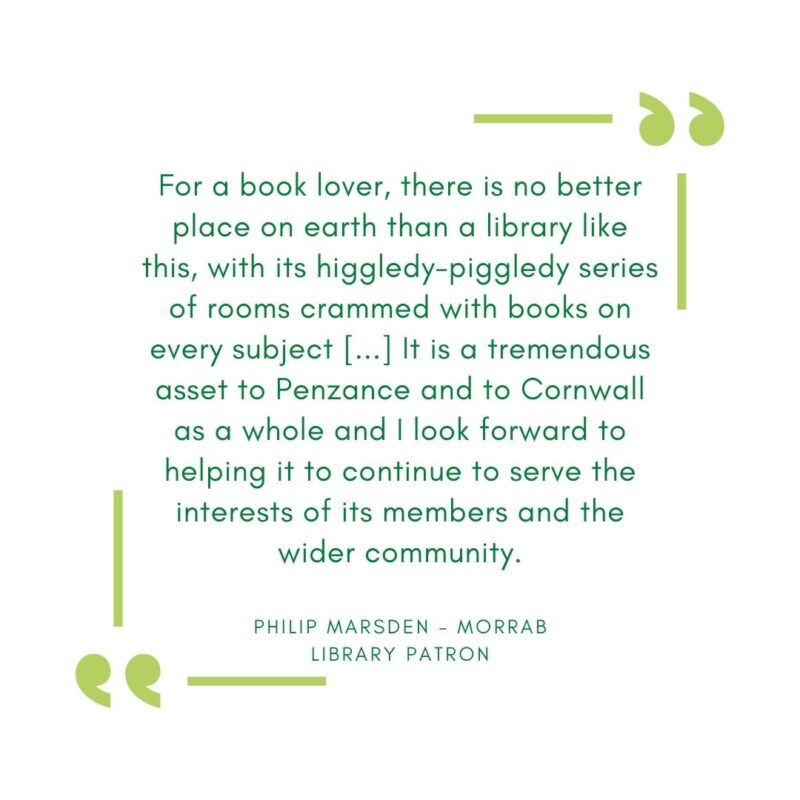
As members, you know that the Morrab is brought to life by its people; it is our loyal and ever-growing membership – as well its dedicated team of Volunteers, Library Staff, Trustees and Patrons – that keep our library thriving and we hope that you will join us in welcoming our new Patrons to the Morrab Library.
by Harriet-Jade Harrow | Mar 31, 2022 | Uncategorized
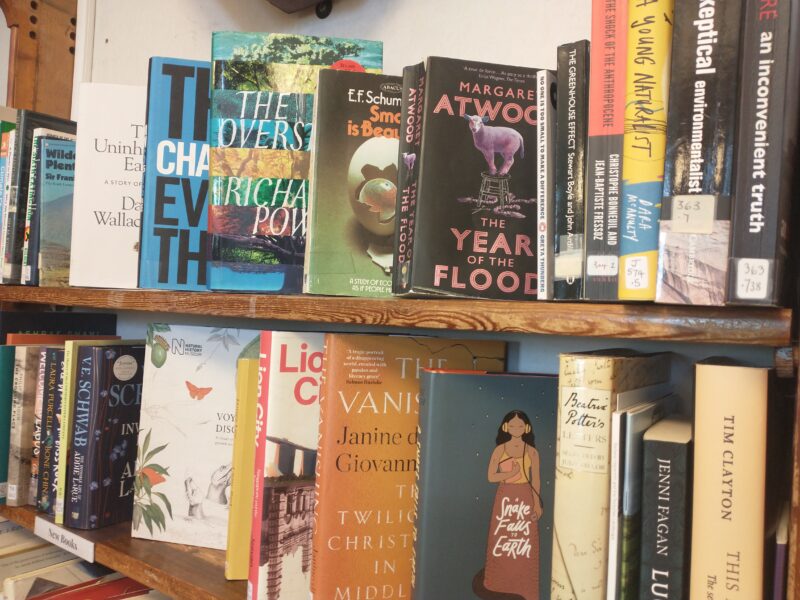
Morrab Library Trustee, climate justice advocate and the instigator of our Penwith Futures Book, Leslie Watson, has put together a reading list of titles to spur your entries to this project.
Leslie’s background is in sustainability including previous roles as Sustainability Manager for West Wiltshire District Council and Director of Sustainability South West and more recently, Leslie gained a Masters Degree in Climate Justice at Glasgow Caledonian University. In her first year as a Trustee from Morrab Leslie has been exploring ways to help the library become greener and more socially inclusive by developing a sustainability strategy.
Her suggestions in this blog range from titles for younger readers through teen fiction to classics and contemporary fiction. We have many of these books, nestled among lots of other sobering, empowering and inspiring books on the subject, in a display on the top of the ‘New Books’ shelf by reception. We hope that you find titles that pique your interest and get your mind whirring with ideas for how to make the future of Penwith better, thoughts we hope you’ll put into words in an entry for the Penwith Futures Book Project (find out how to get involved here).
Please take a look at the display next time you are in the library. We will be refreshing the selection periodically, adding more titles from the list below. We’d also love to hear your suggestions for any new cli-fi, inspiring essays or thought-provoking children’s books that you’ve been reading around the subject of climate change in our ‘Book Suggestion’ book, which can be found on the front table.
Here are Leslie’s recommendations…
For younger readers:
- The Lorax – Dr Suess – An allegory about the effects of using precious natural resources in the products we consume. It raises questions about who owns and protects the natural environment for the future.
- Hello Mr World – Michael Foreman – A positive book about climate change for young children. Mr World is unwell. Children decide to play ‘doctors’ to work out how to make him better.
- Notes for Living on Planet Earth – Oliver Jeffers – TIME best book of the year 2017. An atmospheric, heartfelt guide to our planet and the special places on it.
- Kate, who Tamed the Wind – Liz Garton Scanlon – A rhythmic read aloud story about a girl who solves a windy problem by planting trees.
- A Symphony of Whales – Steve Schuch – Beautifully illustrated tale of young girl who gathers help from others to save trapped whales – helping them to understand the importance of all life.
 Young Adult:
Young Adult:
- No-one is Too Small to Make a Difference – Greta Thunberg – Inspirational speeches from the young climate activist.
- Youth to Power: Your voice and How to Use It – Jamie Margolin – Featuring interviews with young environmentalists, this book is a how-to guide for young people wishing to engage in peaceful, healthy, effective activism towards a socially just and environmentally sound future.
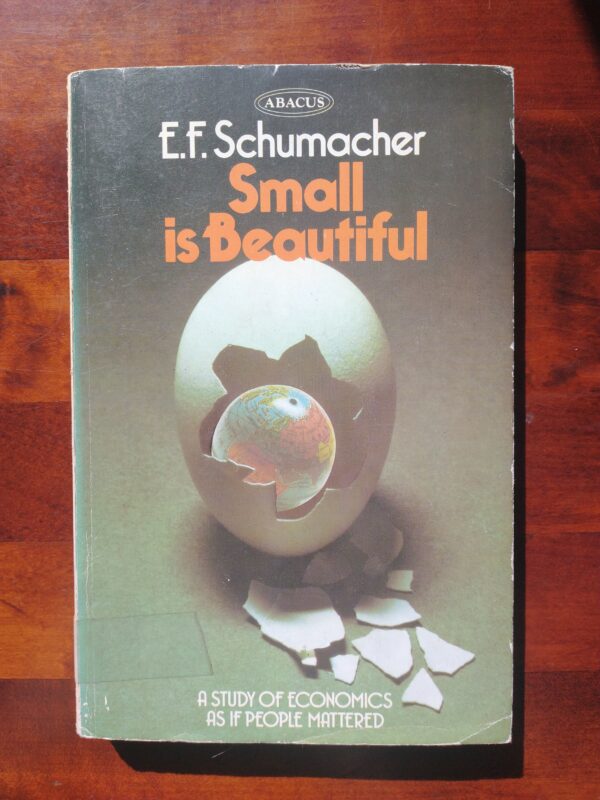 Classics:
Classics:
- Walden – Henry David Thoreau (1854) – Thoreau is widely considered to be the father of the green movement. Walden promotes a philosophy of simplicity derived from self-reliance to inspire people to live in connection with nature.
- A Sand County Almanac – Aldo Leopold (1949) – Leopold was an ecologist and environmentalist, whose essays, particularly ‘The Land Ethic’, appeals for moral responsibility for the natural world.
- Silent Spring – Rachel Carson (1962) – Charting Carson’s environmental conservation research revealing the destructive effects of pesticide use on waterways. This key work was partly responsible for the development of the environmental movement and influential to the rise of ecofeminism. Its legacy helped to establish a citizen’s right to a clean environment.
- The Drowned World – JG Ballard (1962) – An early dystopian prophecy of the environmental chaos unleashed through pollution. Ballard was writing about the endgame effects of global warming long before such a concept existed.
- Diet for a Small Planet – Frances Moore Lappe (1971) – The first book to consider the environmental impact of food production especially on waste and food scarcity.
- Small is Beautiful – E.F. Schumacher (1973) – Schumacher was an economist whose essays considered the social and environmental effects of a modern economic system that promoted unfettered growth.
- The End of Nature – Bill McKibben (1989) – Considered the first book about global warming written for a general audience and a plea for life-renewing change.
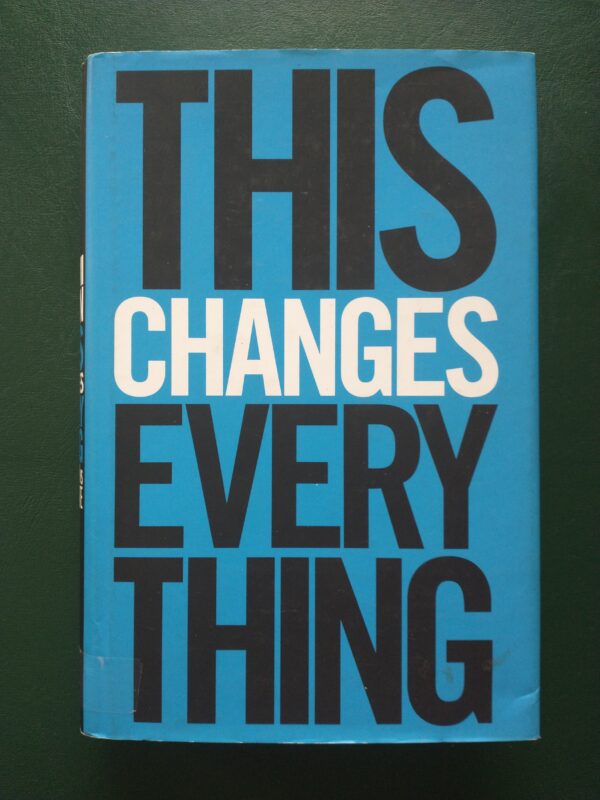
More recent:
Non-Fiction:
- This Changes Everything and On Fire – Naomi Klein – Hugely influential books reviewing the nature of the capitalist system and its social and environmental consequences.
- Doughnut Economics – Kate Raworth (2017) – Describes an alternative economic system that takes account of social capital and environmental limits.
- The Uninhabited Earth – David Wallace-Wells (2019) – Explains how complacency and negligence are putting the world on a course to become uninhabitable unless we change and adapt how we live.
- The Sixth Extinction: An Unnatural History – Elizabeth Kolbert (2014) – Received The Pulitzer Prize for general non-fiction in 2015. Examines the current and projected human-caused extinction of our planet’s flora and fauna.
- Earth Emotions – Glenn A. Albrecht (2019) – Examines our emotional responses, particulary by young people, as we understand the environmental consequences, actual and predicted, of human activity. It Introduces new terms including ‘solastagia’- (longing for a lost home) and optimistically proposes a change from the destructive Anthropocene to a balanced ‘Symbiocene’.
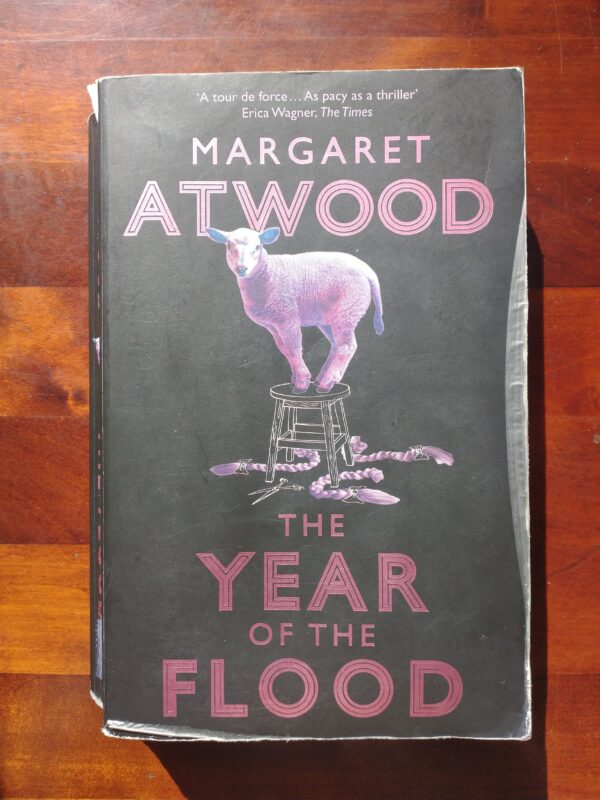 Fiction:
Fiction:
- The Year of the Flood – Margaret Atwood (2009) – Part of a dystopian trilogy exploring the need for us to reconnect with nature.
- Flight Behaviour – Barbara Kingsolver (2012) – Addresses the lack of public education on global warming through the story of a woman whose life changes when 15 million monarch butterflies alight in the woods near her home.
- Overstory – Richard Powers (2018) – Winner of the 2019 Pulitzer prize. A sweeping work about environmentalist activism. A gigantic fable set amongst the trees.
- The Great Derangement – Amitav Ghosh (2016) – The acclaimed Indian novelist argues that we may be deranged in our seeming inability to grasp the scale of the climate crisis. He considers it the most urgent task of today’s writers to imagine better ways for humans to exist on the planet.
- The Ministry for the Future- Kim Stanley Robinson (2020) – An epic of the imagination using fictional eye-witness accounts to tell the story of how the current environmental crisis could unfold. With a hopeful depiction of in the nick of time resolutions.
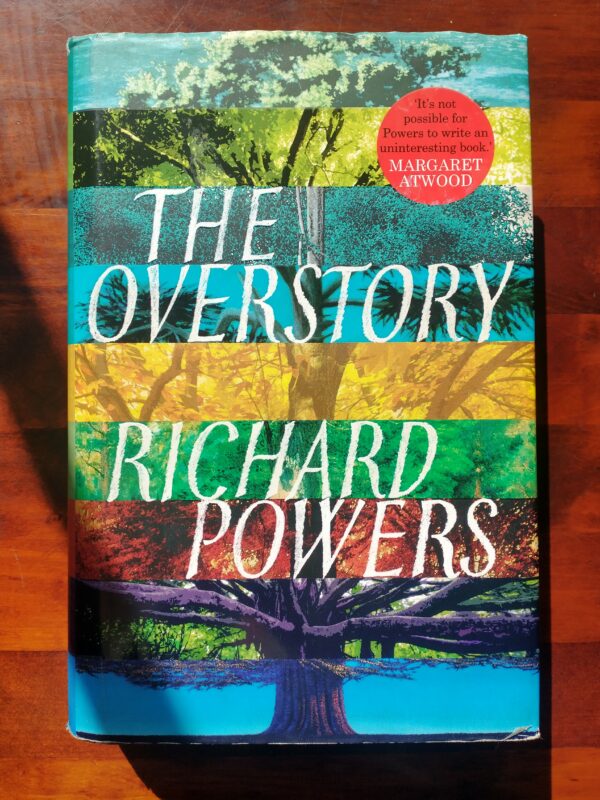
by Lisa Di Tommaso | Dec 27, 2021 | Blog, Uncategorized
In the midst of lockdown over 2020 and 2021, Morrab Library was contacted by Alison Shell, Professor of Early Modern Studies at University College London. She had come across a brief citation to an item in our Archive collection, created by the late John Simmonds, who, over twenty years, had created a record on paper of all our holdings – an extraordinary piece of work when you consider we hold more than 5,000 records.
Alison’s curiosity was piqued by this record – all John, and his colleague the notable author and historian P.A.S Pool, had been able to unearth about this unassuming slim volume:
MOR/MAN/5 – ” a volume written in Latin of the texts of several religious plays in the 17th or early 18th century hand. The subjects include King Canute, Earl Godwin and the prophet Mahomet (portrayed as the Antichrist). A gift of the Reverend James Halliwell (1862). Brown leather, bound, 16cm”
She made the long journey from London to visit the library and examine the volume, and her efforts were rewarded with a truly remarkable discovery. Read Alison’s blog to find out more…
A volume of 17th-century Latin plays written by English Catholics, almost certainly at the English College at St Omer, has recently been discovered in the Morrab Library collections (1).
During the reign of Elizabeth I, when it became clear that England would remain Protestant for the foreseeable future, expatriate English Catholics grew increasingly concerned to preserve their faith for successive generations. To this end, they set up educational institutions in continental Europe, of which the English College at St Omer, or ‘St Omers’ – the forerunner of Stonyhurst College in Lancashire — is one of the best-known. Catering mostly for school-age boys, it was run by the Jesuit order, well-known across Europe for its educational efforts. Jesuits knew how effectively drama could develop oral fluency, confidence and memory skills in their charges, and — anticipating present-day educators — made considerable use of it as a teaching aid. Their productions also functioned as a public relations exercise when mounted for distinguished visitors or the local community, often deploying music, dance and spectacle to show off the students’ abilities. Most of all, they promoted the ideals of Counter-Reformation Catholicism in an attractive and imaginatively compelling manner – not least among the young actors themselves. (2)
An important part of the Order’s missionary endeavour, Jesuit drama had an international reach through Catholic Europe and even beyond. Yet it was very much coloured by national concerns, as the present volume demonstrates. Even though its English writers and actors were living and working outside England, they were passionately committed to bringing their mother country back within the Catholic fold. Two plays in the present compilation draw on English history: the tragedy Canutus magno maior (Canute, greater than the great) dramatizes the life of King Canute, the other, Godwinus, is shaped round historical anecdotes about Godwin, Earl of Wessex. The volume also features another tragedy, Clearchus furens (Clearchus raging); an apocalyptic play in which Christ clashes with Mohammed; an untitled dialogue with characters including an angel and a poet; and the allegorical drama Philander, sive Angelus custos (Philander, or The Guardian Angel) (Fig.1). The latter play is signed by Francis Biddulph, a student at St Omers between 1664 and 1670. (3) (Fig.2). Since English Jesuit plays rarely travelled between colleges and had relatively little currency outside them, this makes it overwhelmingly likely that the manuscript was a St Omers production. The inclusion of Biddulph’s work also suggests that the volume was compiled in the mid- to late 1660s, though Philander might still have been read after Biddulph had left St Omers.
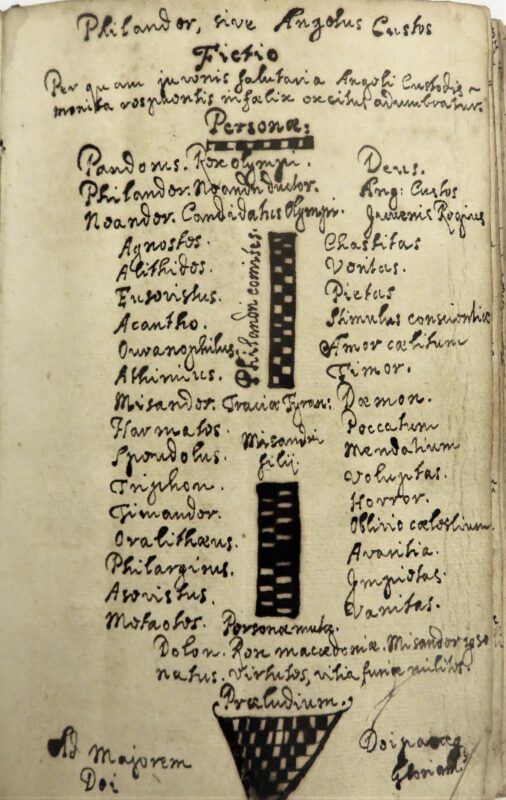 Figure 1
Figure 1

Figure 2
The volume was most probably compiled for reading rather than performance, though it is likely that the plays themselves were put on in some form. The play about Christ and Mohammed may be the apocalyptic drama of which the St Omers register records a performance in 1669, another reason to attribute it to the College (4). No evidence has yet been found of the other plays’ production, but this is not surprising; the dramatic culture of St Omers encompassed everything from classroom performance upwards, and much of it was ephemeral. The more prestigious a production, the more likely it was to be recorded, but even for plays of this kind, records are incomplete and unsystematic. It is unusual, though, for more than one copy of a St Omers play to survive, and the fact that a British Library manuscript also contains copies of Canutus and Clearchus suggests that these particular dramas were relatively high-profile and well regarded (5).
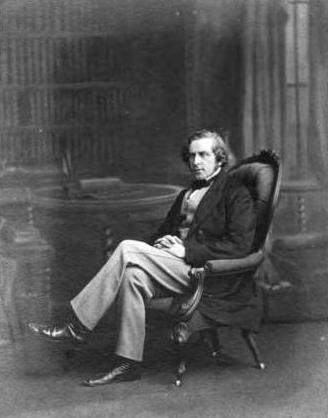
The manuscript came into the Morrab Library as part of a donation of seventeenth- and eighteenth-century playtexts from the Shakespeare scholar James Orchard Halliwell (later Halliwell-Phillipps) (Fig.3, above). One item in his correspondence with the library contains an undated list of books and manuscripts that mentions Canutus and Clearchus (6). Halliwell-Phillipps was a generous donor to repositories, including the Shakespeare Birthplace Trust in Stratford-upon-Avon, Chetham’s Library in Manchester and the Smithsonian Institution in Washington; he had a particular love of Penzance, where he frequently holidayed. He was awarded the freedom of the borough for his patronage, and a bookcase in the Morrab Library bears his name to this day (7) (Fig.4). Seven decades after his death, in 1964, the Library put the bulk of his collection up for sale at a time of financial difficulty, and the collection was dispersed: mostly to Edinburgh University Library, another institution that had benefited from Halliwell-Phillipps’s patronage (8). The St Omers plays were not included, most likely because they were not considered worth selling. Perhaps they were thought to be extraneous to English dramatic history, or peripheral within Halliwell-Phillipps’s collection — or perhaps the Latin was off-putting. But the oversight has had the happy result of preserving this rare and compelling find within the Morrab’s own collections.
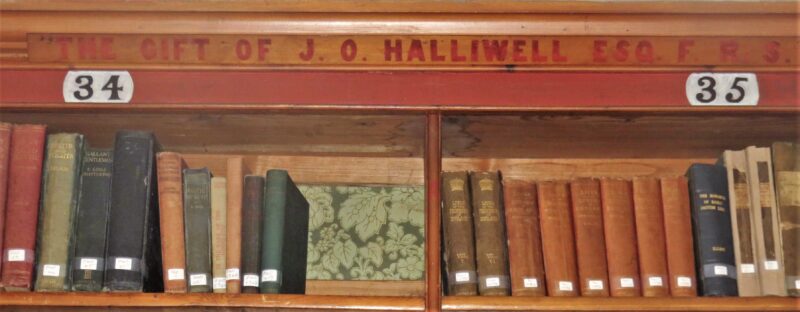
Figure 4
(With thanks to Lisa Di Tommaso; Arnold Hunt; Joe Reed, Archivist at Stonyhurst College; and the Leverhulme Trust for funding my archival research through a Major Research Fellowship.)
Alison Shell (Professor)
Department of English
University College London
FOOTNOTES
1: Morrab Library, MOR/MAN/5.
2: William H. McCabe, SJ., An Introduction to the Jesuit Theater. Ed. Louis J. Oldani, SJ. (St Louis: Institute of Jesuit Sources, 1983), and Paul Shore, ‘Counter-Reformation Drama’, ch.19 in The Ashgate Research Companion to the Counter-Reformation, ed. Alexandra Bamji, Geert H. Janssen and Mary Laven (Farnham: Ashgate, 2013).
3: Geoffrey Holt, SJ. St Omers and Bruges Colleges, 1593-1773: A Biographical Dictionary (S.l. Catholic Record Society, 1979), p.36. For biographical details of another, earlier Francis Biddulph, see Thomas M. McCoog, S.J., English and Welsh Jesuits, 1555-1650: Part 1, A-F, Catholic Record Society, vol.74 (London: Catholic Record Society, 1994), p.170.
4: McCabe, p.99.
5: BL Add MS 41182.
6: Morrab Library, Halliwell-Phillipps correspondence (MOR/LIB/20a).
7: Arthur Freeman and Janet Ing Freeman, ‘Phillipps, James Orchard Halliwell- (1820–1889), Oxford Dictionary of National Biography, online; The Cornishman, 19 October 1893, p.6.
8: Cyril Noall, The Penzance Library, 1818-1968 (Penzance: Penzance Library, 1968), pp.28-9; ‘In the Saleroom’, Times Literary Supplement, 30 July 1964.
by Lisa Di Tommaso | Jul 17, 2021 | Blog, Uncategorized
Dr. Richard Austin Freeman (1862 – 1943) was a British writer of detective stories, very much in the style of Arthur Conan Doyle’s Sherlock Holmes. Library member Martin Crosfill has written a fascinating insight into the author and his character, Dr John Evelyn Thorndyke.
Dr Thorndyke: The First Professional Forensic Pathologist in Fiction?
On the Cornish fiction shelves is a book entitled “The Shadow of the Wolf ”. It is of interest partly because the action is centered around Penzance and the Bishop Rock Lighthouse, partly also because it is the first ‘inverted’ detection story. The identity of the murderer is revealed early on and the meat of the tale is concerned with the process of detection. Here is a short outline of the author’s life and work. The argument that the laurel belongs to Sherlock Holmes will be welcomed and challenged.
Click here to read Martin’s blog….
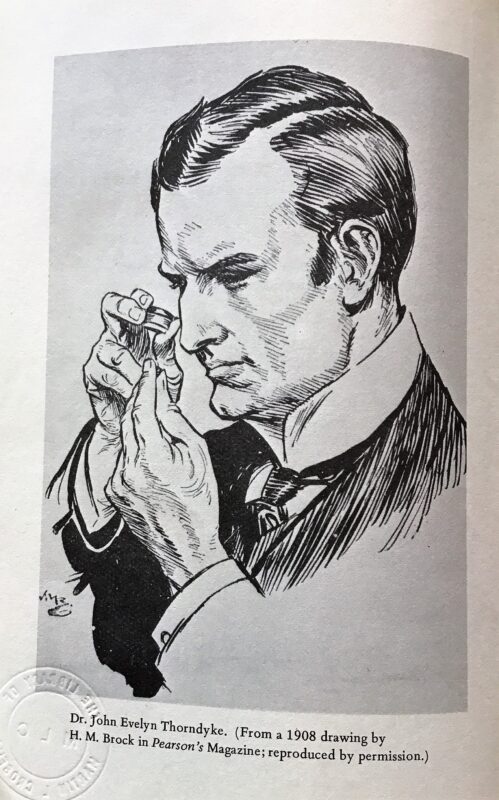
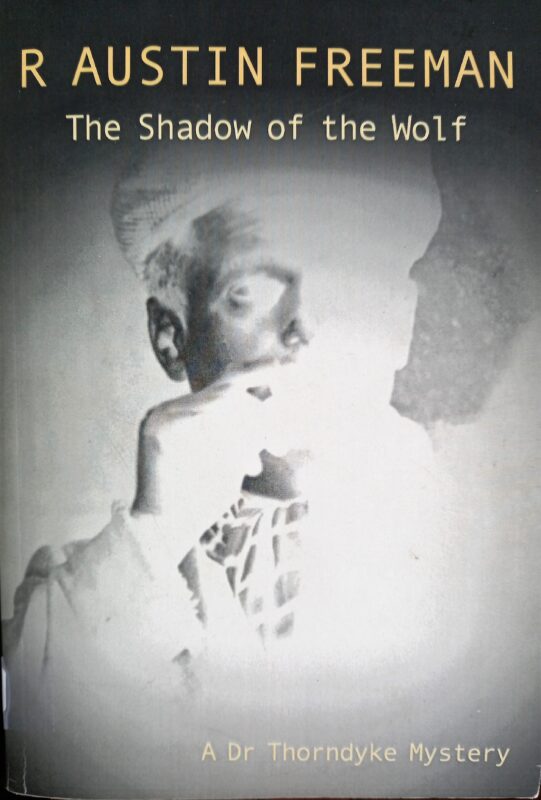
by admin | Feb 8, 2019 | Uncategorized
Friday, 8th February 2019
 We’re sorry to say that the library will be closed today. Due to high winds, the Council have closed the gardens, so access to the library will not be possible. If the weather improves dramatically over the course of the day, and the garden gates are unlocked, then we may be able to re-open, and we will send another message if this is possible. Otherwise, full service should resume tomorrow, Saturday.
We’re sorry to say that the library will be closed today. Due to high winds, the Council have closed the gardens, so access to the library will not be possible. If the weather improves dramatically over the course of the day, and the garden gates are unlocked, then we may be able to re-open, and we will send another message if this is possible. Otherwise, full service should resume tomorrow, Saturday.
With many apologies for the inconvenience.
Lisa, India and Katie



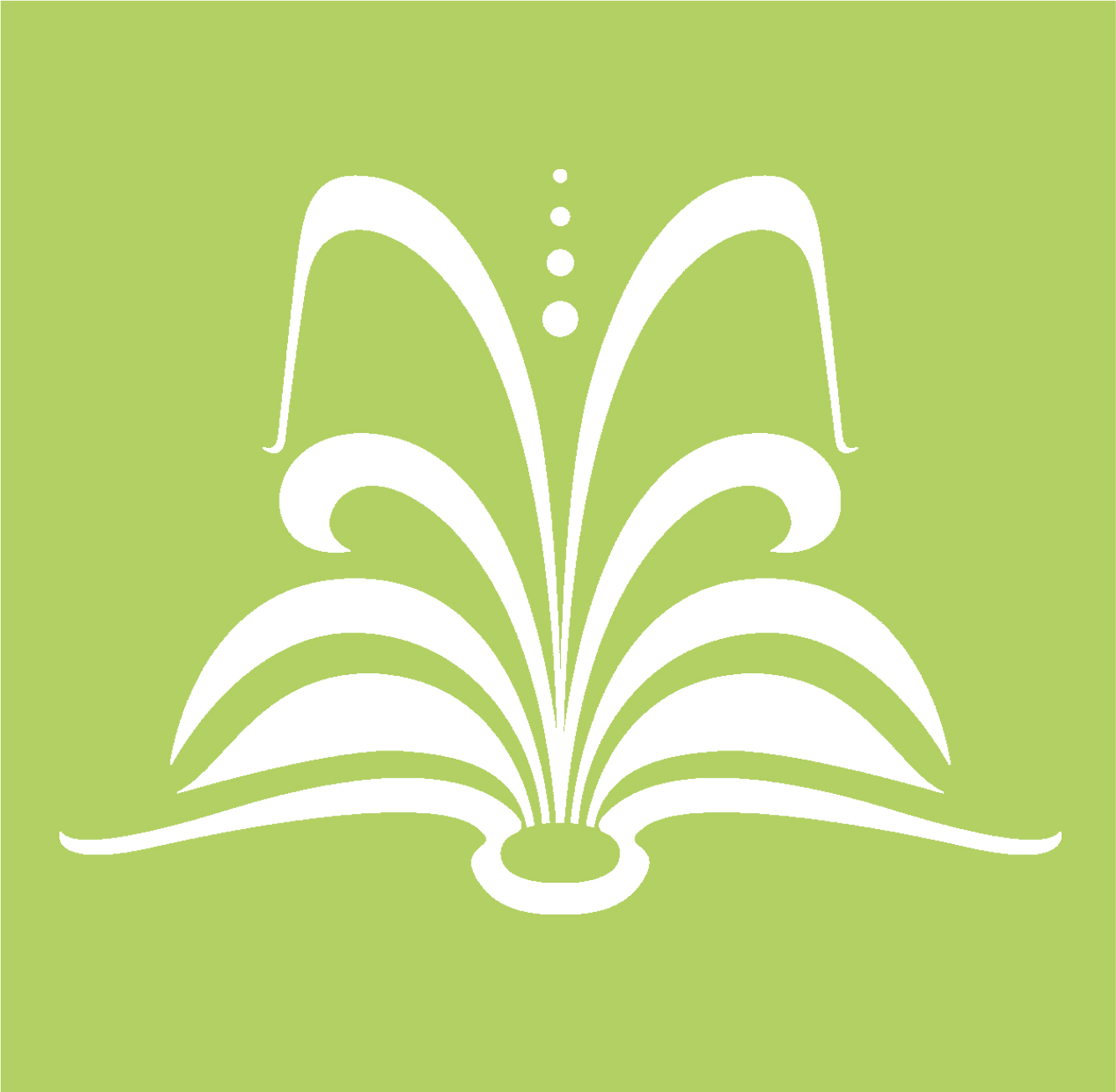

 Young Adult:
Young Adult: Classics:
Classics:
 Fiction:
Fiction:
 Figure 1
Figure 1





